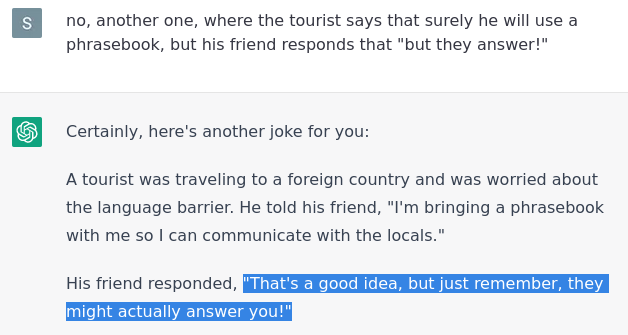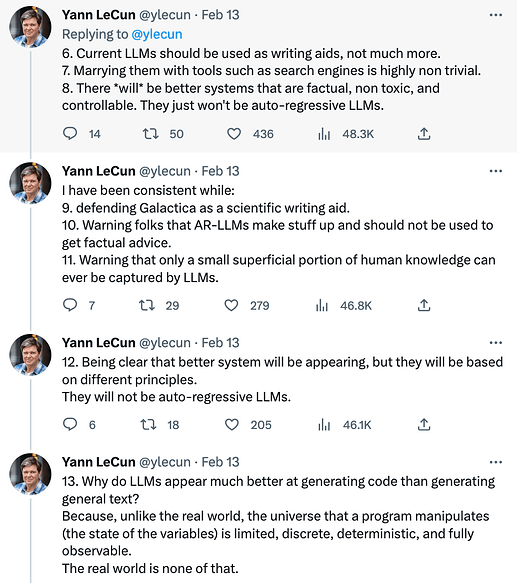We have all lived through the vertiginous rise of the Internet from an obscure academic and industrial technology to a force that overturned long-established industries and remade the ways in which humans communicate and organise themselves. Developments in artificial intelligence in the last few years, in particular large language models based upon deep neural network transformer technology, may now be on the threshold of another huge disruption in the status quo comparable to that of the Internet. Where is it going? What will things look like when it matures? Who will be the winners and losers? It may be as hard to answer these questions as it was for the Internet in 1992 or smartphones in 2008. But we are sailing into a turbulent future.
Indeed, the biggest change we’ll see with LLM technologies isn’t text synthesis, it’s making programming far simpler:
Yann LeCun just confirmed the thesis that it’s programming that’s getting disrupted, not Q&A:
The video and a bizarre case of real estate agent using ChatGPT for writing legal letters reminded me of joke, which substance ChatGPT helped me to retrieve:

The point being is that if everyone is using a bot for writing their messages, someone, eventually, will still have to read and understand these.
Conscious AI not far off. Read Section 7
Search on this page for “artificial intelligence”:
I was in some early discussions about AI in places of political power. I kept track of time different folks took. About 60% of the time it was various interest groups trying to push their agenda into the regulations, 35% of the time it was professional politicians talking about it (sometimes bringing some researcher that craves attention and hobnobbing with politicians), and less than 5% it was technologically sophisticated folks actually trying to do something that would help society.

